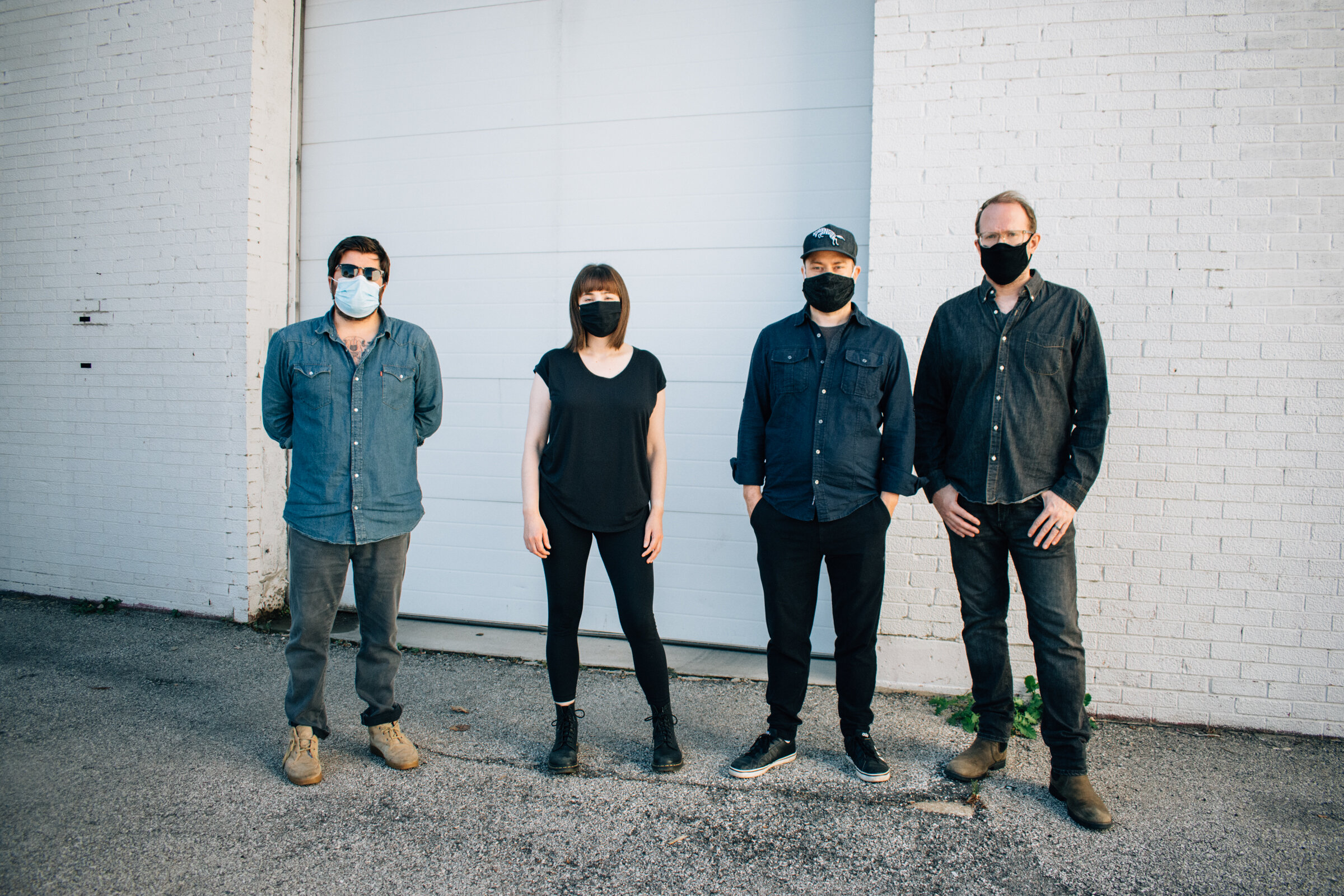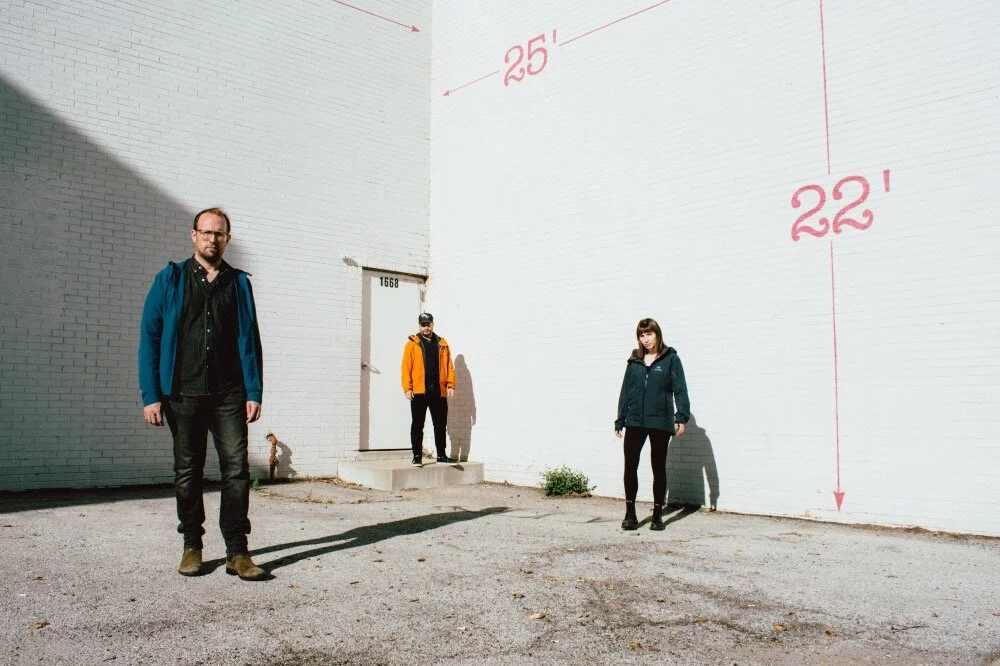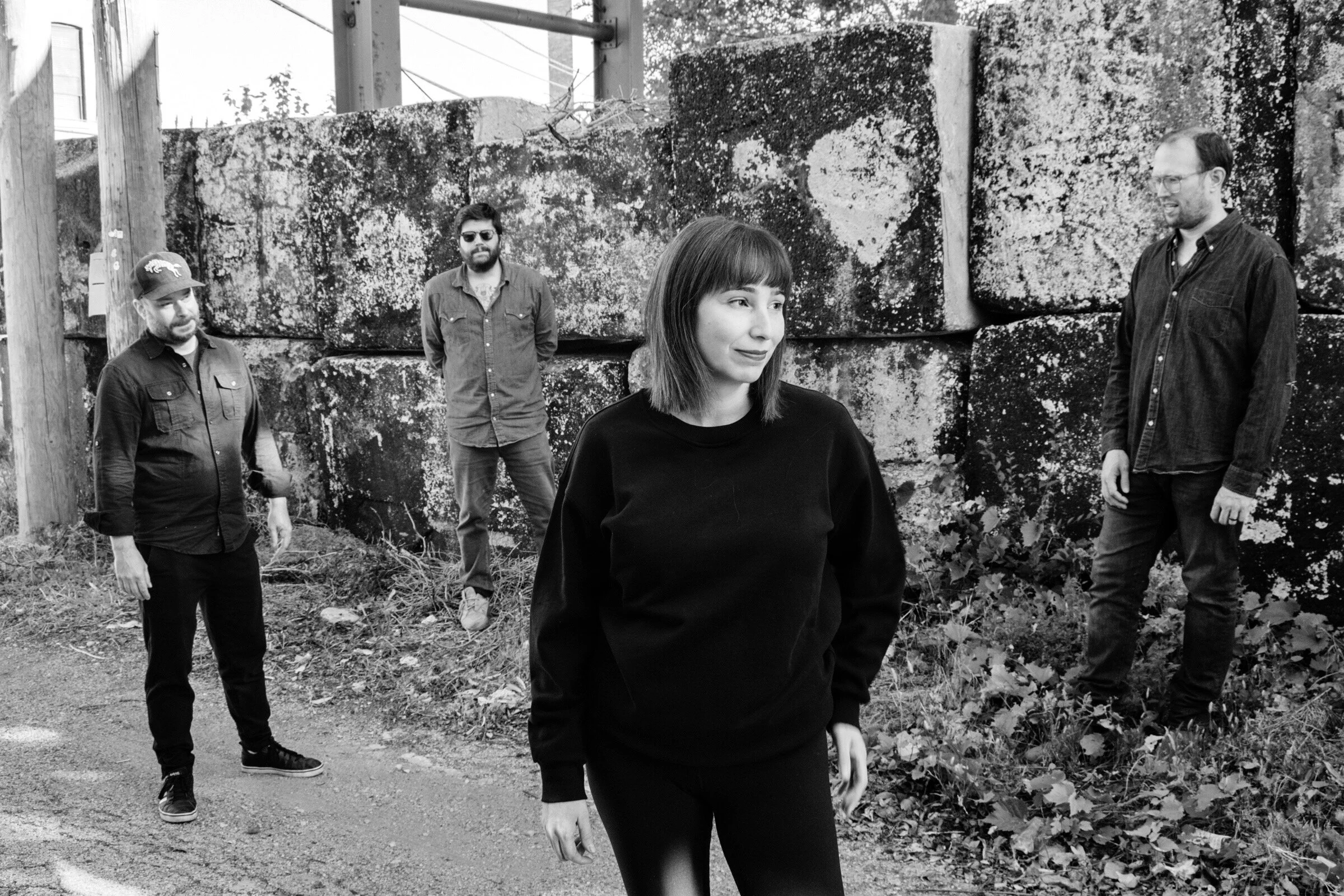Click Image to Download!
A new and dreamy synth-pop band featuring a lineup of veteran Chicago musicians, Course formed at the end of 2019, just months before the COVID-19 pandemic closed venues and barred gatherings across the country. After headlining a single show at Chicago’s beloved venue Constellation, lead singer Jess Robbins, drummer Chris Dye, and synth/keys player Dan Ingenthron, along with new additions guitarist Mikey Russell and bassist Brian Weekly, were forced to find creative ways to continue making music.
Though technically categorized as synth-pop, Course’s style often veers into more inventive territory. The band takes inspiration from a wide range of acts, from Canadian indie-pop band Alvvays to iconic, genre-bending groups like Radiohead, blending aspects of dream-pop, 90s new-wave, alternative, electronic, and indie rock. Drawing on Robbins’ dream-folk roots (from her earliest acoustic singer-songwriter releases to her 2018 dream folk release Lightfield), Course incorporates polished, modern production and lush electronic instrumentation to create songs with a characteristic ethereal-industrial sheen— something totally new for Robbins. With a more collaborative creative process (the full band contributes to songwriting), the resulting sound hits the mark somewhere between Julee Cruise and Depeche Mode, or Butterfly Boucher and The Cocteau Twins. Like their sound, the band’s name invites a wide range of interpretation, playing with all possible meanings of the word: “A race course, a life path, a series of classes, of course… There are so many ways to hear it. It’s open-ended yet simple. That suits us,” says Robbins.
Course’s debut album, a self-titled full-length set for release in 2021, reflects the band’s hybrid idiosyncrasy in more than one way. “I recorded this album part solo, and part with the band in Texas hill country,” says Robbins. The band left Chicago to spend a week in Dripping Springs, a desert town where producer Dan Duszynski (who also drums for Loma on Subpop) set up a studio among airstream trailers. When the pandemic hit, the band had to pivot and finish the record at home, working virtually from their Chicago apartments. Course shows a clear departure from the more solemn singer-songwriter tracks of Robbins’ past. Bright but with depth, the album offers a collection of elegantly upbeat reflections on life and love— though not without somber moments. The track “Henry” narrates a friend’s suicide by train, with Robbins singing from the perspective of a mother losing a beloved son. Recorded while in quarantine (Robbins recorded her own vocals in her bathroom), “Crazy Love” is a refreshing love song that’s decidedly not sad. The folk-synth track “Nick of Time” revisits a bit of familiar territory for Robbins, but with a fresh, more complex take on the genre. Featuring three songs co-written with friend and fellow Chicago musician Kevin Prchal as well as backing vocals by former bandmate Jamie Semel (who left Chicago during the pandemic), Course is an album filled with intricate and sweeping stories—literally. At one point while writing lyrics Robbins found herself stuck, so she devised another way into the songs: She wrote narrative fiction stories to accompany and elaborate each track.
Despite the complications of 2020, Course continues to evolve, growing closer as bandmates and more expansive as artists. That flexibility and spirit permeates their music as well as their activity. The band currently meets online while in-person gatherings are prohibited. They also formed a pandemic horror movie club, watching films in separate houses to reinforce a sense of togetherness. “It feels kind of weird putting out an album right now,” says Robbins. “But what happens if we stop making music?”











